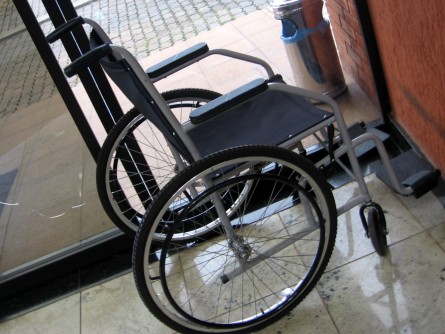As the debate about the role of government unfolds, charities, foundations, and the people they serve cannot afford to remain quiet. While nonprofits are legally required to stay out of the partisan fray, they are allowed and even encouraged to talk freely about public policies and values.
Rosenman is certainly correct that many charities receive a large percentage of their budgets from government grants. And that if this money is cut, nonprofits could suffer. But a quick glance at the areas with which Rosenman is concerned leaves much room for trimming without actually harming those most in need. Rosenman warns: "First comes an assault on Medicare, a critically important program to the elderly and the nonprofits that serve them."
Well, it's critically important to some of the elderly. But Medicare is not really means-tested. Which is to say you pay modestly higher premiums if your individual income is over $85,000. The higher income beneficiaries will at most be paying about $300 a month for Medicare. Reserving programs like Medicare and Social Security for the truly needy would go along way to fixing our budget problems. But then it would also make a lot of seniors and (relatedly) Democratic lawmakers unhappy.
Then Rosenman suggests that Pell Grants will also be deeply affected by Paul Ryan's budget cutting. And everyone knows that will hurt those in need the most. But Pell Grants have spiraled out of control. Not only have they contributed to the the skyrocketing college tuition (administrators know that the feds will always be there to foot the bill), but Pell Grants are increasingly benefiting our wealthiest students. As a recent Wall Street Journal editorial explained:
The program is set up in other ways that invite abuse. Because the amount of a Pell Grant for full-time study depends on both a student's financial straits and the cost to attend school, better-off students often receive the large Pell Grants and apply them to more expensive schools. According to [one study] in 2009-10, 20 percent of Pell grantees from families making over $60,000 opted to take their federal checks to schools that cost $30,000 or more per year. That luxury wasn't available to students from lower income families, who attended ritzy schools at a much lower rate.
Rosenman goes on to complain about cuts in food stamps. But the abuse of this program has been well-documented. The Department of Agriculture just last week launched a campaign to curb food stamp fraud. People are selling their debit cards online. They are purchasing beer and cigarettes with the cards. And the fact that 1 in 7 Americans is on food stamps is not a sign that the economy is in the tank. It's a sign that the eligibility standards are too low. Food has gotten cheaper and cheaper as a percentage of income over the past decades and yet the government contribution to family's food budget has gone up and up.
If government cuts back on Medicare, Pell Grants, and food stamps, will nonprofits have to make up the difference? Well they won't be subsidizing the healthcare of wealthy seniors or the college costs of middle-class kids who want to attend Ivy League schools.
And to the extent that they are actually filling in the gaps for the needy, nonprofits will presumably take a different approach than government. Private donors will be more concerned about seeing their money wasted. They will also be able to exert more control than taxpayers. They will demand results for programs they support. They will want to compare different models for solving social problems and then choose the ones that do the most good rather than just leaving everything to large government bureaucracies.
If this is an election about nonprofit organizations. then the nonprofits, the private donors, the American taxpayers, and even the needy beneficiaries of these programs should welcome it.






While I don’t disagree with the writer questioning how much of the country’s belt tightening under a Republican administration would affect nonprofits and their constituencies, I do question some of her assertions. In the case of Pell grants she seems to be saying that the children of middle class families should not aspire to attend the country’s elite universities (because seriously, how can a family making $60K a year spend $30K or more on one child’s education? Middle class kids should be content with public universities no matter how bright and motivated they are? And by the way, Pell grants are small. Anyone wanting to attend those elite universities will still have plenty of skin in the game.). In the case of food stamps, I completely agree they should not be used for beer or cigarettes, but the kind of food that has gotten cheaper over the years is of poor nutritional quality. The price of good food has risen steadily. These arguments sound like thinly disguised blame-the-victim talking points. Fraud, abuse, distortions do exist, in our social programs (as they do in our businesses). If we base our assessments of social programs on the fraud and abuse in order to eliminate or drastically reduce programs that genuinely help the country’s young people and old people and sick people aspire to a higher quality of life, then the country will suffer and nonprofits will indeed be called upon to fill in the gaps.